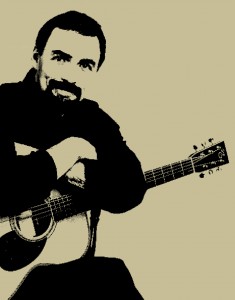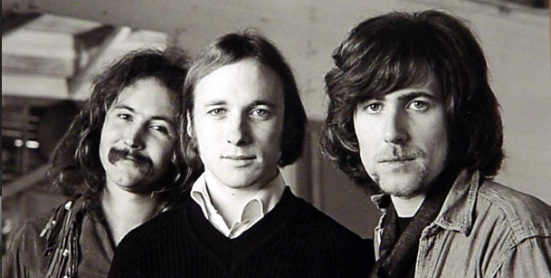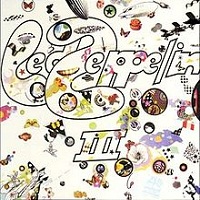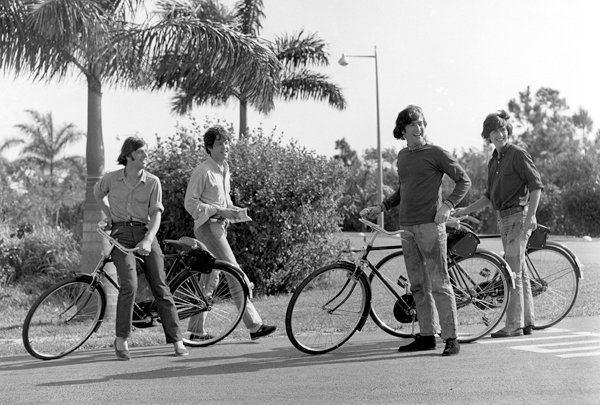Videos by American Songwriter
By the time you read this, he’ll be gone. My father Charles Talley is in the end stage of Alzheimer’s. The hospice people are there every day. He can’t walk, talk, or eat anymore. There’s no way to know for sure if he recognizes any one. When his eyes are open, he just stares into space. They say the sense of hearing is the last thing to go. When I sit beside his bed, I play the old songs we used to play together like “Spanish Eyes,” “Yellow Bird” and “Never On Sunday.” He blinks more often, and his feet move a little bit more, I think. I’m pretty sure he’s hearing me and wanting to play along.
Just a few weeks ago, he was singing “You get a line and I’ll get a pole.” I had my guitar and my mom asked him if he knew what chord I was playing. He glanced at my hand and said “G” very matter-of-factly. He could barely talk, sometimes didn’t recognize close friends, but he sure knew what a G chord was.
He grew up on a farm outside of Hornsby, Tennessee, and learned to play guitar from friends, relatives and neighbors. Just out of high school in 1942, he joined the Army’s 101st Airborne Division and sailed to England to prepare for the D-Day invasion. While training near Reading, he met some other pickers and had a little country band for a while. He fought at Normandy, The Invasion of Holland, and was wounded in The Battle of The Bulge. He came home and married my mom, a self-taught pianist.
The first song he ever taught me to play was “You Are My Sunshine,” when I was about ten, I guess. My mother says I really didn’t like that song, and wanted to learn an Elvis song instead. I don’t remember that part. After I learned to play it, I started to like it. I learned everything by ear, the same way he did. He’d play and sing country songs with his friends. They could play just about any country song in the “guitar friendly” keys of G, C, D, A and E. Now and then, somebody like Willie Nelson would write a song like “Crazy” which had a lot more chords than usual. The other guys would just give up, or play it wrong, but Daddy would learn to play it right. They’d say, “That song’s got too many of them off chords in it.” That meant anything other than a I, IV, or V chord, usually. But my Dad would learn diminished, augmented and major 7th chords and he could play the pop songs of the day like “Moon River.”
Our house was where they used to congregate on weekends and holidays. Music seemed to be the glue that held everyone together. Anyone who wanted to play, sing or listen was welcome. Many of my family’s best friends were people who just showed up with a guitar one Sunday afternoon. There were mandolins and banjos, Dobros and harmonicas. One day my cousin Billy was commenting on how many friends we had. I said it might have something to do with church. He said, “It’s not church. It’s that guitar.” And he was right. Some of my dearest, closest life-long friends are people who I’ve played music with, or people who came to me for guitar lessons.
At one point, after the death of my youngest brother, Daddy got so depressed he didn’t play for a while. Then he and my mom were asked to play music for a local nursing home. When they started playing, people who had been unresponsive for years began to smile and tap their feet. That’s when he knew he’d never stop playing again, and that his ability to play an instrument was a priceless gift that he could share as long as he lived.
In my 44 years as a professional musician, I’ve been fortunate to be able to travel all over the world playing and teaching music. In places where there is no common language, music brings people together in profound ways. While traveling with a band in Italy years ago, I met a group of Russians in a hotel. They saw our guitar cases, and with sign language, asked if they could come to our gig. So we took a bunch of Russians to this club in Cuneo, Italy, and they had a great time. After the gig, we played and sang back at the Cavolo Nero Hotel. One of the Russians had a gut-string guitar and sang Russian folk songs while we exchanged CDs, T-shirts, rubles, vodka, pins and sausage. We had no language in common except music, which truly is the universal language.
My father’s life was enriched immeasurably by playing the guitar and he blessed so many others along the way. You can do that, too.













Leave a Reply
Only members can comment. Become a member. Already a member? Log in.